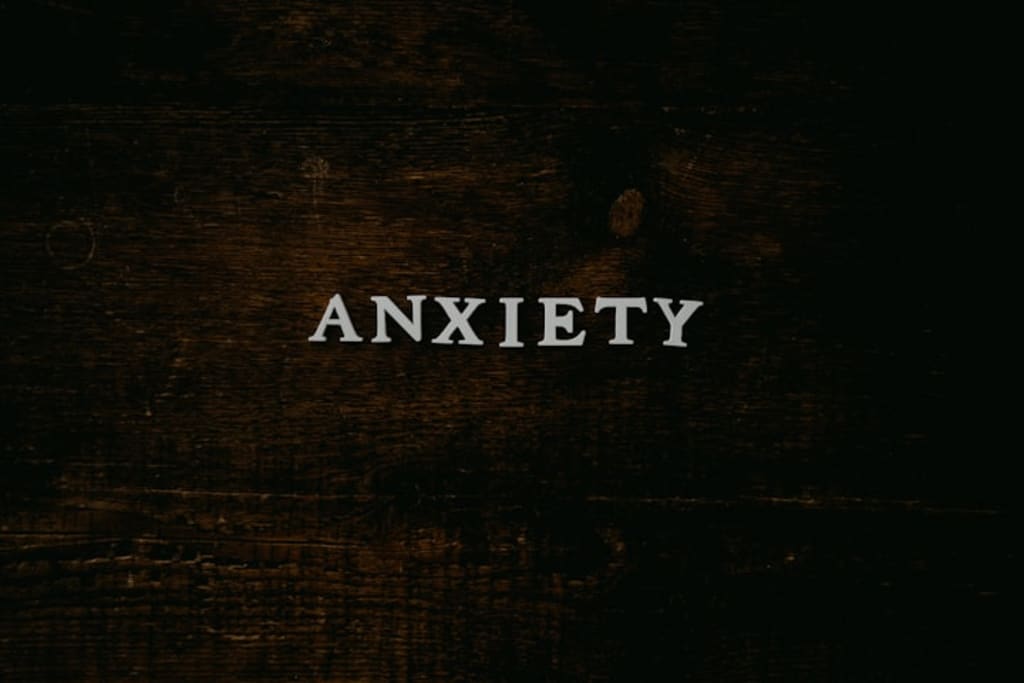The Surprising Link Between Anxiety and Aging
How chronic stress affects your body

As we age, our bodies undergo natural changes that can affect our physical and mental health. From wrinkles and gray hair to decreased energy levels and memory lapses, it's easy to attribute these changes to the natural aging process. However, did you know that chronic anxiety and worry can also accelerate the aging process? In this article, we'll explore the surprising connection between anxiety and aging, and what you can do to promote healthy aging.
The Stress-Aging Connection
When we experience stress or anxiety, our body responds by releasing stress hormones like cortisol. Chronically elevated cortisol levels can lead to inflammation, cellular damage, and even shorten our telomeres (the protective caps on the ends of our chromosomes). Telomeres naturally shorten as we age, but shorter telomeres have been linked to a higher risk of age-related diseases such as heart disease, cancer, and Alzheimer's.
Anxiety is a common experience that affects millions of people worldwide. According to the American Psychological Association, 40 million adults in the United States alone experience anxiety disorders each year. While anxiety is a normal emotional response to stress, chronic anxiety can have severe consequences for our physical and mental health.
How Anxiety Affects Our Bodies
Anxiety can lead to a range of physical symptoms, including:
- Fatigue: Chronic stress can lead to exhaustion, making it difficult to get out of bed in the morning or perform daily tasks.
- Insomnia: Difficulty sleeping or insomnia can exacerbate anxiety symptoms and disrupt overall health.
- Digestive issues: Stress can cause stomach upset, irritable bowel syndrome (IBS), and other digestive problems.
- Headaches: Tension headaches and migraines are common symptoms of chronic stress.
- Muscle tension: Anxiety can cause muscle tension, leading to pain and stiffness in the neck, back, and shoulders.
Anxiety can also affect our mental health, leading to:
- Mood disturbances: Depression, irritability, and mood swings are common consequences of chronic anxiety.
- Memory lapses: Anxiety can impair memory and cognitive function, making it difficult to focus or remember important information.
- Social withdrawal: Avoiding social situations due to fear of embarrassment or rejection can exacerbate anxiety symptoms.
The Evidence
Studies have shown that individuals with high levels of anxiety tend to have shorter telomeres than those with low levels of anxiety. One study published in the journal Psychosomatic Medicine found that women with high levels of anxiety had shorter telomeres than those with low levels of anxiety. Another study published in the Journal of Behavioral Medicine found that individuals with high levels of stress had shorter telomeres than those with low levels of stress.
In addition to telomere shortening, chronically anxious individuals often have higher levels of cortisol and oxidative stress markers. Oxidative stress occurs when our cells are exposed to free radicals, which can damage cellular DNA and contribute to aging.
What You Can Do
So, what can you do to promote healthy aging and reduce the negative effects of anxiety? Here are some strategies:
- Practice relaxation techniques: Regularly practicing relaxation techniques such as meditation, deep breathing, or yoga can help reduce stress and anxiety symptoms.
- Get regular exercise: Exercise is a natural stress-reliever that can also boost mood and overall health. Aim for at least 30 minutes of moderate-intensity exercise per day.
- Eat a balanced diet: Focus on whole foods rich in fruits, vegetables, whole grains, lean proteins, and healthy fats. Avoid sugary snacks and processed foods that can exacerbate anxiety symptoms.
4. Prioritize sleep: Aim for 7-9 hours of sleep per night to help regulate your body's response to stress.
5. Engage in activities you enjoy: Make time for hobbies or activities that bring you joy and help you feel fulfilled.
6. Seek professional help: If you're struggling with chronic anxiety or depression, consider seeking help from a mental health professional.
By incorporating these strategies into your daily routine, you can reduce your risk of premature aging and promote a healthier, happier life. Remember that healthy aging is not just about avoiding wrinkles or gray hair – it's about maintaining overall well-being throughout your life journey.
About the Creator
Enjoyed the story? Support the Creator.
Subscribe for free to receive all their stories in your feed. You could also pledge your support or give them a one-off tip, letting them know you appreciate their work.






Comments
There are no comments for this story
Be the first to respond and start the conversation.